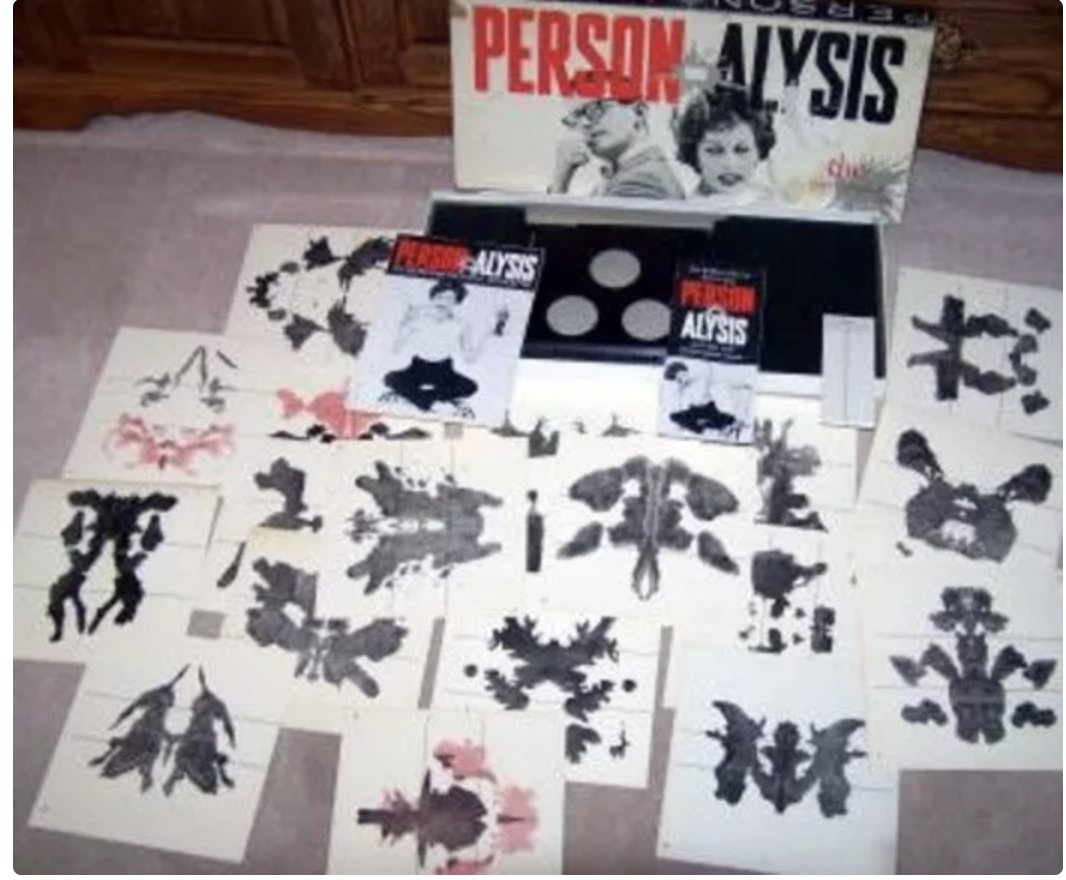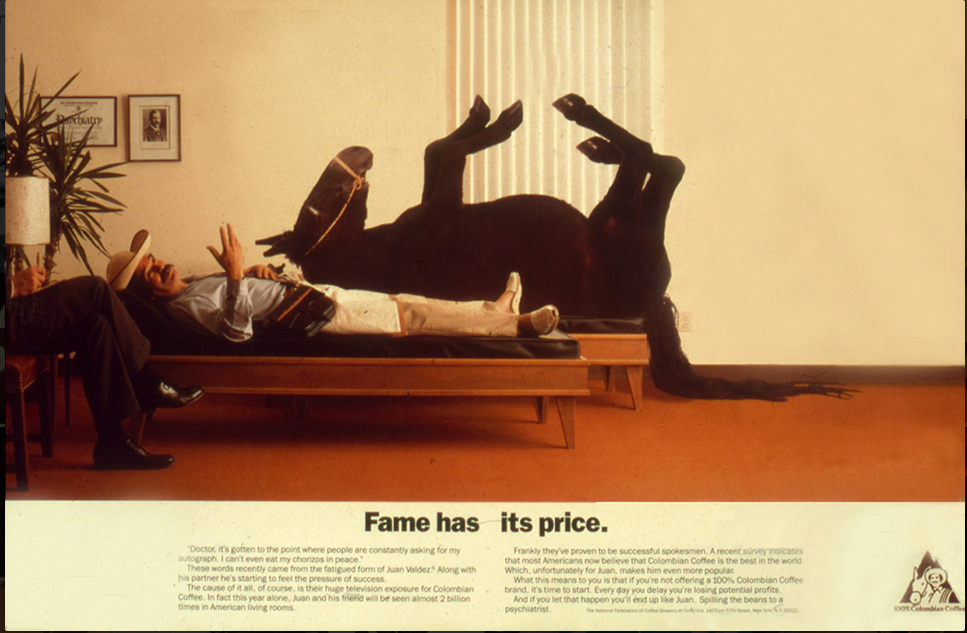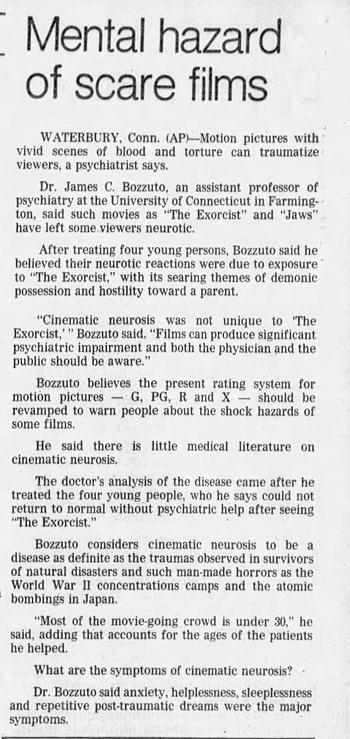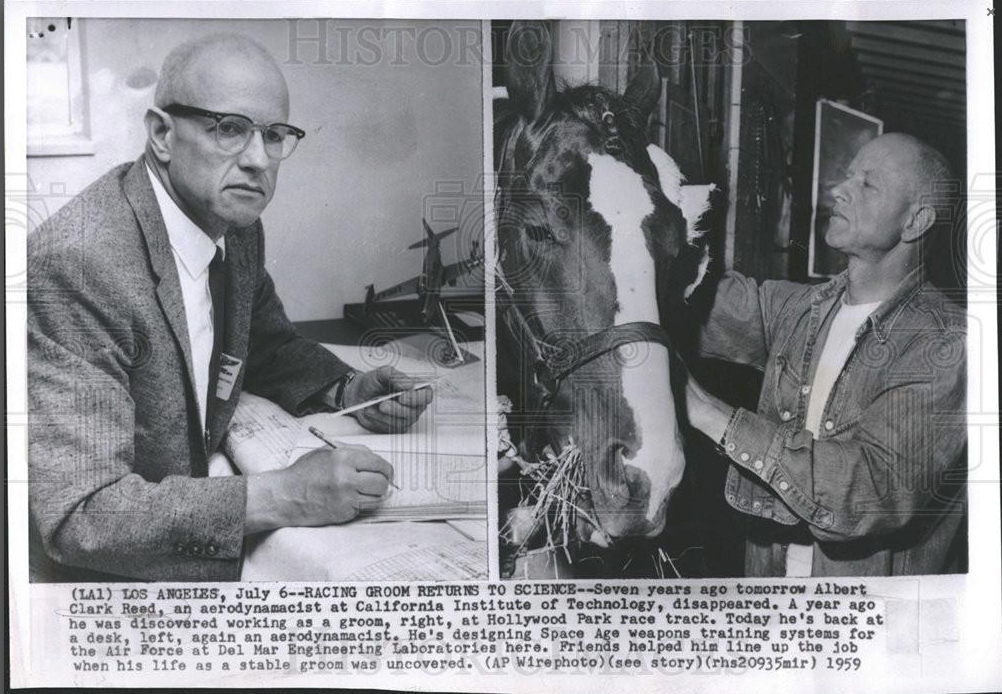Bad Habits, Neuroses and Psychoses
Person-Alysis Game
Reveal which member of the family has an Oedipus Complex! Who's a sociopath? Good fun!The entry at Board Game Geek.


Posted By: Paul - Thu Mar 14, 2024 -
Comments (0)
Category: Bad Habits, Neuroses and Psychoses, Games, Hobbies and DIY, Psychology, 1950s
Follies of the Madmen #579

Posted By: Paul - Wed Oct 25, 2023 -
Comments (0)
Category: Animals, Anthropomorphism, Bad Habits, Neuroses and Psychoses, Advertising, Coffee and other Legal Stimulants, 1980s
Pyrophobia
In 1964, the pro-smoking, German scientist Helmuth Aschenbrenner argued that anti-smokers were suffering from 'pyrophobia,' or fear of fire. Specifically, they were suffering from 'fear of the 'big fire' or atom bomb."Details from Robert Proctor in The Nazi War on Cancer (1997):
On a somewhat unrelated note, here's a news item from 1981 about a young woman who was also suffering from fear of the 'big fire'.

Vancouver Sun - June 22, 1981
Posted By: Alex - Thu Jul 28, 2022 -
Comments (1)
Category: Bad Habits, Neuroses and Psychoses, Smoking and Tobacco
The man who thought he was a gopher
We've now posted about several cases of clinical zoanthropy, which is the belief that one has turned into an animal. There was the woman who thought she was a camel, and another woman who decided she was a chicken.Here's a third case, from 1982. Walter Murphy of Los Angeles, believing he was a gopher, started burrowing holes. PCP contributed to his delusion. He ended up suffocating to death inside one of his holes.

Kenosha News - Sep 21, 1982
Posted By: Alex - Tue Mar 09, 2021 -
Comments (1)
Category: Animals, Bad Habits, Neuroses and Psychoses, Psychology, 1980s
Have a Good Day, Dear
The office as deathtrap.
Posted By: Paul - Thu Oct 15, 2020 -
Comments (1)
Category: Antisocial Activities, Bad Habits, Neuroses and Psychoses, Business, Death, Destruction, 1970s
Cinematic Neurosis
Following the 1973 release of The Exorcist, six people who saw it had to be admitted to a Chicago hospital "straight from the theater." Psychiatrist James Bozzuto examined four of them and concluded they were suffering from "cinematic neurosis" — a term he coined. Basically, this was neurosis caused by watching a movie. Symptoms of this condition included "anxiety, helplessness, sleeplessness and repetitive post-traumatic dreams."
San Francisco Examiner - Dec 14, 1976
The 1975 release of Jaws also caused an outbreak of cinematic neurosis. Here's a description of a case from a December 1975 Knight News Wire article:
During these attacks, which always occurred at night, she appeared to be unaware of the world around her, and she didn't respond when people spoke to her.
Over the next three days, while doctors ruled out the possibility that she had meningitis or some other neurological problem, she had five of these attacks.
In between these episodes of terror, she talked with neurologist Arnold Barnett about her problem.
It seems that three days before admission, she had seen the motion picture "Jaws," movie history's biggest money-maker, which chronicles the bloody activities of a shark that terrorizes swimmers off the shores of Long Island.
Later that evening, after discussing the film with her friends, she became frightened and upset. She had her first attack the next day.
Barnett treated the girl with sedatives and reassuring conversation. He emphasized the unlikelihood of a shark attack in western Kansas.
Posted By: Alex - Tue Sep 22, 2020 -
Comments (1)
Category: Bad Habits, Neuroses and Psychoses, Movies, Psychology, 1970s
The woman who thought she was a chicken
A recent issue of the Dutch journal Tijdschrift voor Psychiatrie (Journal of Psychiatry) reports on the case of a woman who believed she was a chicken. From the report (via Google translate):Clinically, we saw a lady profusely sweating, trembling, blowing her cheeks and displaying stereotypical behavior in which she seemed to imitate a chicken, such as clucking, cackling and crowing like a rooster. After ten minutes, she seemed to tense the muscles for a few seconds, her face flushed and she did not respond for a short time. These symptoms repeated at intervals of several minutes, between which anamnesis was possible. The patient's consciousness was fluctuating, attention was hyper-reactive and the patient was disoriented in time and space. Her memory could not be tested objectively, but she could adequately tell her history.
She said she had barely slept since five days and wandered barefoot and dressed in a dressing gown on the street at around 4 a.m. the previous night. A general feeling of unwellness had been present for several days, as well as a strange feeling in the limbs, as if they no longer fit her body and flapped uncontrollably. The patient expressed the thought of being a chicken and that they had been forgotten to roost her.
Patient's brother added that he found her in the garden in the same condition as we saw her now. Between that moment and the registration with us, the bizarre behavior in attacks occurred.
The researchers note that clinical zoanthropy (the belief that one has turned into an animal) is an extremely rare delusion. Apparently there have been only 56 cases of this reported between 1850 and 2012. Some of the animals people believe they have become include "a dog, lion, tiger, hyena, shark, crocodile, frog, bovine, cat, goose, rhinoceros, rabbit, horse, snake, bird, wild boar, gerbil and a bee."
More info: The Guardian
Posted By: Alex - Tue Aug 04, 2020 -
Comments (13)
Category: Animals, Bad Habits, Neuroses and Psychoses, Psychology
Matrimonial Delusions


Source.
Posted By: Paul - Mon Apr 27, 2020 -
Comments (2)
Category: Bad Habits, Neuroses and Psychoses, Money, Husbands, Wives, 1900s
Johanna Went
Let us know when you bail.
Halfway through 1984’s Knife Boxing, Johanna Went interrupts her incessant frenzied bopping to thrust her hands into a crudely made body part—half-buttocks, half-vagina—suspended from the roof of Club Lingerie.1 A vicious viscous excremental substance seeps down her arm. She brings her face close and sucks the stuff into her mouth before hauling out a giant goo-covered tampon that she aggressively flings at the audience. Some cringe, others laugh. Quickly she pulls on a costume, a huge mask-headed apron covered in sex doll heads, all the while screaming her unique tongue, a babble from Hell channeled through Lolita-cum-Medea. Screeching tape loops accompany her, along with a blaring saxophone and a loud percussive racket emanating from a woman drumming on found objects.2 A monstrous vagina appears stage right. Went extracts more tampons, heaving each into the mesmerized mosh pit. Completely at one with her, the audience starts hurling these back in a game of volleyball gone mad. After all, this show was held to coincide with the Los Angeles Olympics. Much art programming accompanied that event, but Went was not part of the roster. Instead, she held her own celebration of sports, on the stage of a punk club, flanked by headless stockinette figures replete with genitalia parodying the elegant cast metal kouroi made by Robert Graham to decorate the official Olympic stadiums.
Source of quote, long essay.
Another essay on the creator, here.
Her Wikipedia page.
Posted By: Paul - Fri Mar 13, 2020 -
Comments (9)
Category: Ambiguity, Uncertainty and Deliberate Obscurity, Antisocial Activities, Armageddon and Apocalypses, Bad Habits, Neuroses and Psychoses, Beauty, Ugliness and Other Aesthetic Issues, Music, Avant Garde, Bohemians, Beatniks, Hippies and Slackers, Twentieth Century
Albert Clark Reed, Disappearing Rocket Scientist

Foto source.
Read the full story here.
Posted By: Paul - Wed Nov 13, 2019 -
Comments (1)
Category: Ambiguity, Uncertainty and Deliberate Obscurity, Bad Habits, Neuroses and Psychoses, Eccentrics, Science, 1950s, Sadness

| Who We Are |
|---|
| Alex Boese Alex is the creator and curator of the Museum of Hoaxes. He's also the author of various weird, non-fiction, science-themed books such as Elephants on Acid and Psychedelic Apes. Paul Di Filippo Paul has been paid to put weird ideas into fictional form for over thirty years, in his career as a noted science fiction writer. He has recently begun blogging on many curious topics with three fellow writers at The Inferior 4+1. Contact Us |




